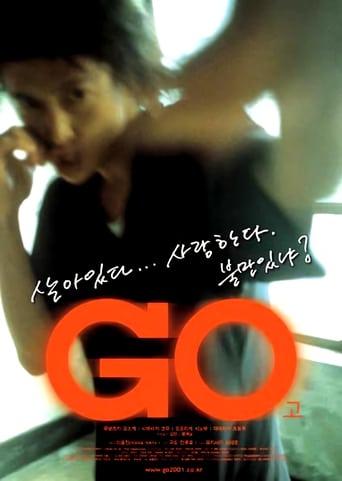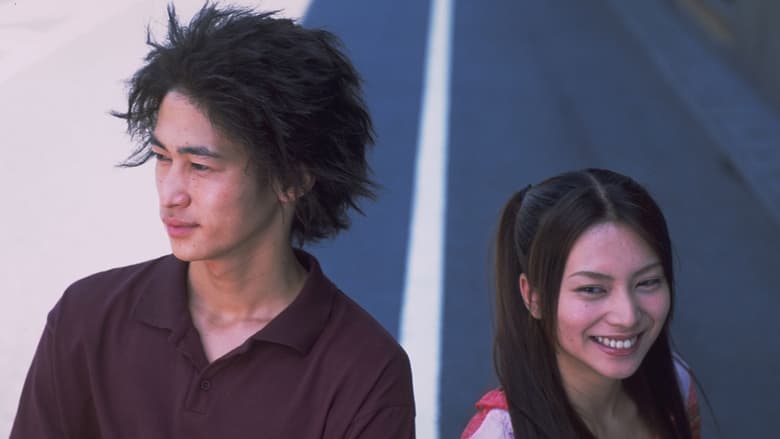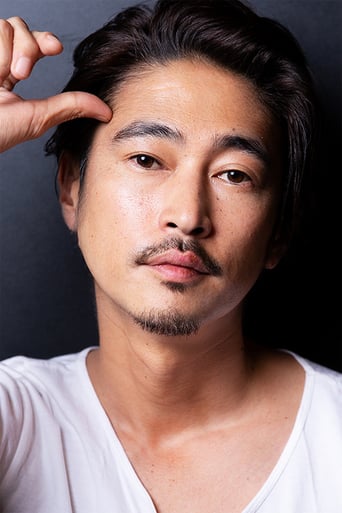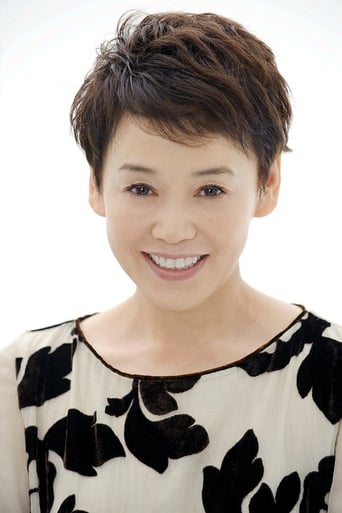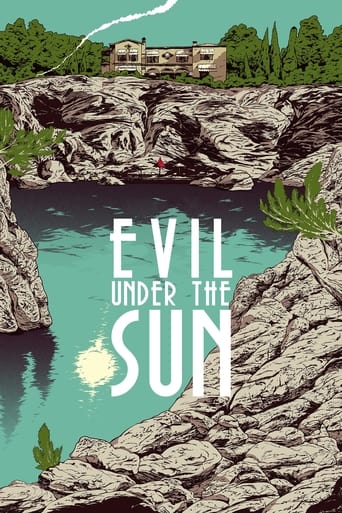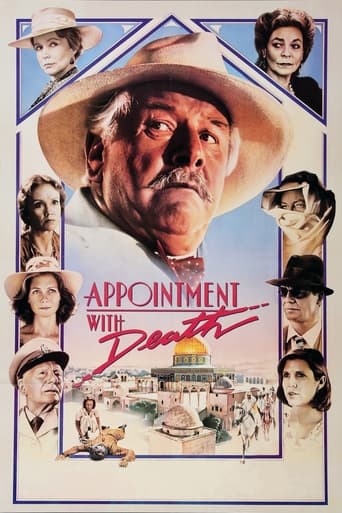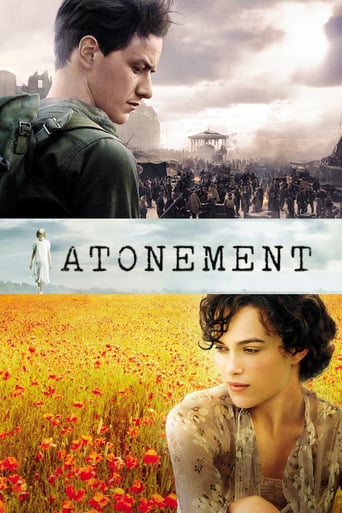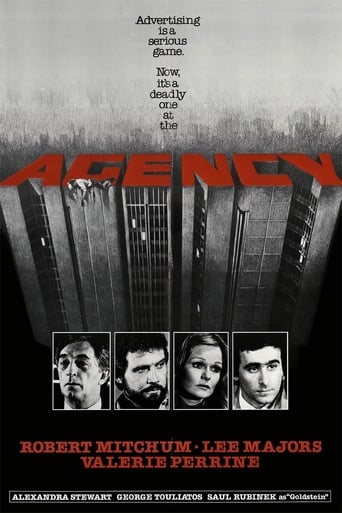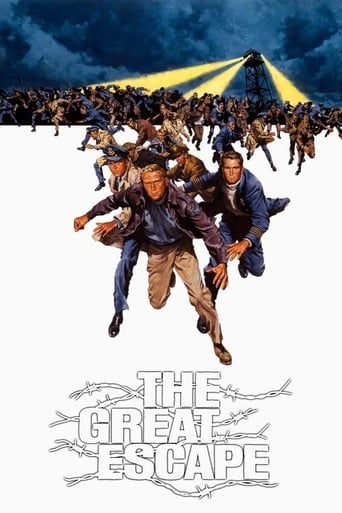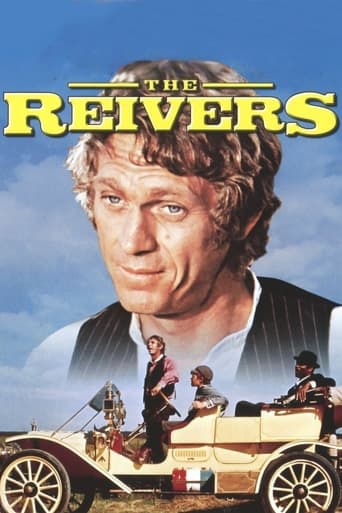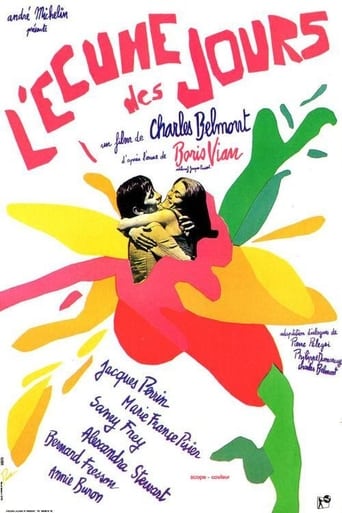GO (2001)
Sugihara, a Japanese-born, third-generation Korean teenager struggles to find a place in a society that will not accept him.
Watch Trailer
Free Trial Channels
Cast


Similar titles
Reviews
Wonderfully offbeat film!
Self-important, over-dramatic, uninspired.
I was totally surprised at how great this film.You could feel your paranoia rise as the film went on and as you gradually learned the details of the real situation.
A great movie, one of the best of this year. There was a bit of confusion at one point in the plot, but nothing serious.
Most reviews here reduced "Go" to a simple love story with great acting and a critique of the racist, Japanese society. I disagree, and rather think that the movie focuses on what it means and feels like to be of foreign descent in any country really. First, the love story does not take place for about the first half of the movie. Rather, the daily life of the protagonist who visits a North Korean high school and has a violent, communist father is shown. It is made clear that both sides, Japanese and Korean tell him that he is different than the ethnically Japanese. For instance, everyone who speaks a word of Japanese gets beaten up by the teacher, which, some might not believe it, is not normal or legal in Japan. From the Japanese side, a constant fear is shown. The peak of this is when a Japanese high school student kills the protagonist's old, classmate out of reaction. It gets very clear that the boy did not have any intention but rather felt afraid and intimidated by the "evil North Korean". Even the protagonist's communist father is aware of the difficulties that this stark difference brings and thus suggests him to change nationalities when having the opportunity to. The love story, which everybody seems to focus on, really takes place in the second part of the movie. It is rather another tool the director chooses to convey the feeling of being of foreign descent. It is not the object of the director to make a Bollywood-like love story, as some suggested here. To make this point clear, just think of the protagonist as ethnically Japanese. Critical scenes which made me like the movie, would not take place. The couple would not have stopped their attempt to have sex for the first time because the protagonist confessed that he is a Zainichi (Japanese. for being of Korean descent). She would not have told him that her father used to say that Chinese and Korean have "dirty" blood. He would not have to face an awkward family dinner in which the girls' father, who thought that he is Japanese), talked about how great and virtuous Japan is and how lucky they all are to be of this ethnicity.But why use a love story in the first place and not show daily microaggressions such as the American counterparts do, you may ask? The answer is because there are hardly any. The Japanese culture is very much formed by the concept of Honne and Tatamae. A person would never show his or her true face (Honne) to a stranger. You have to get very close to a person for him or her to say what is really on their mind. In addition, the protagonist puts an effort to seem as Japanese as possible. He hardly tells someone his Korean first name and instead introduces himself with his Japanese last name. As a German of European descent whose ex-girlfriend was Korean American, I can confirm with great confidence that this does not just take place in "evil, racist" Japan. I heard numerous times why I speak German so well and that I do not look Turkish because of the way I dress. I have even felt great improvements in my dating game after dying my hair brown/blondish for fun. At the end, my personal relation is maybe the reason why I liked this film so much. I, too am a Zainichi, who is not Muslim and does not agree or relate to Turkish or Muslim culture at all. Yet I am the first person who is asked to explain actions of the ISIS and the Turkish president, I know nothing about. The movie ends with a scene where the protagonist screams: "Where am I from? Why are you all afraid of me?!". I would recommend everyone to watch the movie and think of it of more than "just a love story with a critique of Japanese society".
"This is a storyabout my love." With the movie GO young Sugihara (wonderfully portrayed by Yôsuke KUBOZUKA) tells his story-the story about his life, the story of a generation, of two nations, but most of all a story about his love. He tells his story in his own speed, his own pictures-sometimes fast forwarding (but never hectic), sometimes in slow motion, he speeds forward, he looks back, yet doesn't lose count. GO for freedom It's not easy being Sugihara--raised as a Zainichi, a Korean who lives in Japan, by a father (helplessly lost: Tsutomu YAMAZAKI) who usually speaks with his fists and who'd rather be a Spaniard, a mother (secretly unhappy: Shinobu OTAKE) who is always trying to run away and this time maybe for good; his friends live in constant war with society (and the police). Violence is a daily routine, at home and at the North-Korean school Sugihara attends, where corporal punishment is a legitimate way of teaching and speaking Japanese is strictly prohibited. So Sugihara tries to fight through, constantly angry, constantly hostile. GO for love But something changes when Sugihara starts to visit a Japanese school, to outrun his patriotic teachers and their brainwashing methods, and first meets Sakurai (lovely: Kou SHIBASAKI) who decides that he should become her boyfriend. Sugihara's attention turns from violence to Shakespeare, but the anger grows to live among people whose intolerance is only exceeded by it's ignorance. And he learns that he will have to fight for acceptance-with words, with bare knuckles and maybe all alone, because Sakurai turns away from him when she finds out he's not Japanese. But he also understands that nobody is really free from prejudices, when one night he meets a young Japanese police officer who actually listens to him. GO to fight „No soy coreano; ni soy happones; jo soy desaraigardo" (I'm neither Korean, nor Japanese, I'm just grass without roots), Sugihara explains to his father and tells him about his future plans: He wants to attend College, wants to take a chance on his life. But most of all, he wants to accept and respect himself, for that, he understands, is the necessary first step. And because GO is a film about love, Sakurai returns to him, having overcome the xenophobia indoctrinated on her by her father, giving their love another chance. GO is fast, GO has speed, GO has action, GO has humour and GO has love. Director Isao YUKISADA characterizes a generation, a society, a nation and creates something unique: he lends the desperate his voice, that is loud enough to be heard without pointing fingers. GO is like it's protagonist-fresh, energetic and hungry for life; unwilling to give in to his fate.c by Leska Beikircher
I love this movie. Not only is Yusuke Kubozuka the man but this movie is just done really really well. It is a very good combination of stylistically surreal scenes such as the basketball scene and the race against the train, along with a plot that delves into issues that are very prevalent in Japanese society. A good friend of mine has experienced quite a bit of this prejudice in Japan being of partially Korean descent. It's actually been a little while since I've seen the movie so I can't really comment on too much of the specifics, but I just remember it as being a very intense experience that came through on a number of levels, combining an interesting love story, cool action sequences, humor, social commentary, and a coming of age story all into one amazing movie. Also it was great to see the actor who played the father again because he was so cool back in "Tampopo".
Go was a surprise at Berlin FilmFest. A wild - at times bloody - story about a guy from the North Korean community in Japan, who tries to find out what his roots are and where he belongs to. Sugihara speaks Japanese, he looks like an ordinary Japanese punk and has Japanese friends - but he is different. He feels alienated from his parents and his background, he hates the rigid rules at the North Korean college he is attenting (chanting, marching and being beaten up by a strictly communist teacher included), but he's got no clue how to meddle into Japanese society. So he does best provocating others much to the anger of his father a former boxer, who has very special methods of education. What most people don't know, there are strong reservations in Japan against the Koreans in the country, so in the course of the events Sugihara hits some walls, especially when he fells in love with a Japanese girl, and doesn't dare to tell her the truth. A strong example for "New Japanese Cinema". Watch out for this director!

